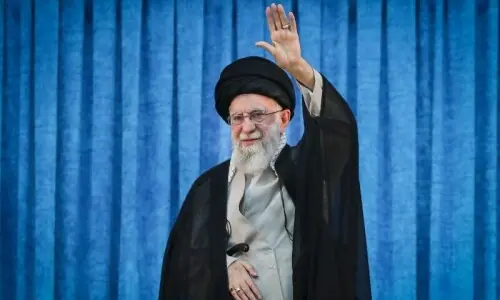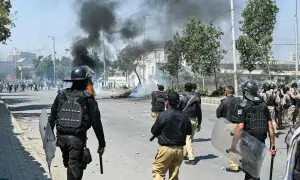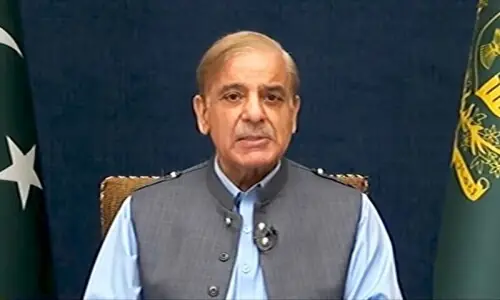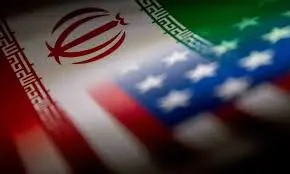
GENEVA: Pakistan warned on Tuesday that growing international support for rival India's nuclear programme would force Islamabad to bolster its deterrence and destabilise the region.
In the opening session of the 2011 Conference on Disarmament, Pakistan's ambassador Zamir Akram sharply criticised reported moves to bring its neighbour into the Nuclear Suppliers Group (NSG) and other bodies that allow trade in nuclear materials, including for weapons.
“Apart from undermining the validity and sanctity of the international non-proliferation regime, these measures shall further destabilise security in South Asia,” Akram said.
“As a consequence Pakistan will be forced to take measures to ensure the credibility of its deterrence. The cumulative impact would be to destabilise the security environment in South Asia and beyond,” he told the conference.
He said Pakistan maintains its opposition to negotiations on a ban on the production of new nuclear bomb-making material, a lone public stance that has blocked the Conference on Disarmament despite pressure from major powers.
US disarmament ambassador Laura Kennedy told journalists last week that negotiations on a ban, a Fissile Material Cut off Treaty (FMCT), were a priority for Washington.
“We believe that this is long overdue, it's a priority. And this sense of urgency is not, again, simply one of the United States, but is widely shared,”Kennedy said.
Akram earlier told journalists that Pakistan “would like a treaty that deals with stocks not just future production.”
Nuclear powers broke more than a decade of deadlock in May 2009 by agreeing on a work plan at the world's only multilateral arms control forum, which can only make decisions unanimously.
The plan included full negotiations on a fissile material ban, as well as talks on nuclear disarmament, the arms race in space and security assurances for non-nuclear states.
However, the disarmament conference has slumped back into deadlock since then, as Pakistan raised fresh objections.
“We believe that we need to build a capacity that is a credible deterrence at the lowest levels,” Akram explained earlier, adding that Pakistan would nonetheless not seek to entirely match India's nuclear capability.
































